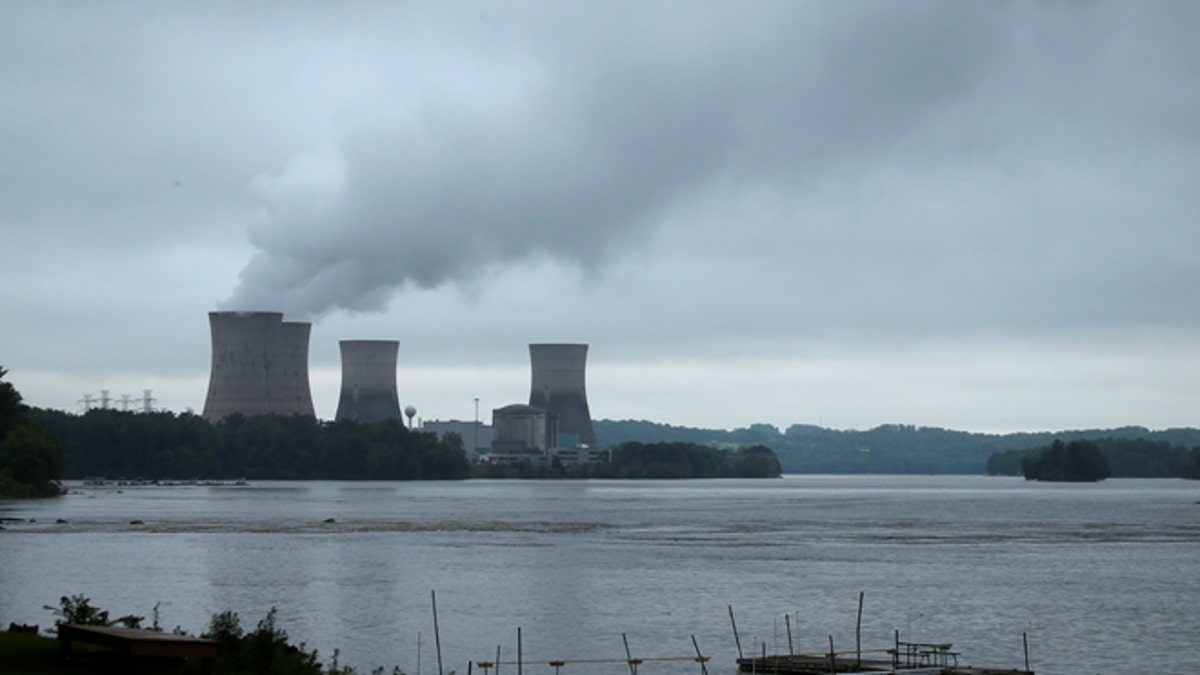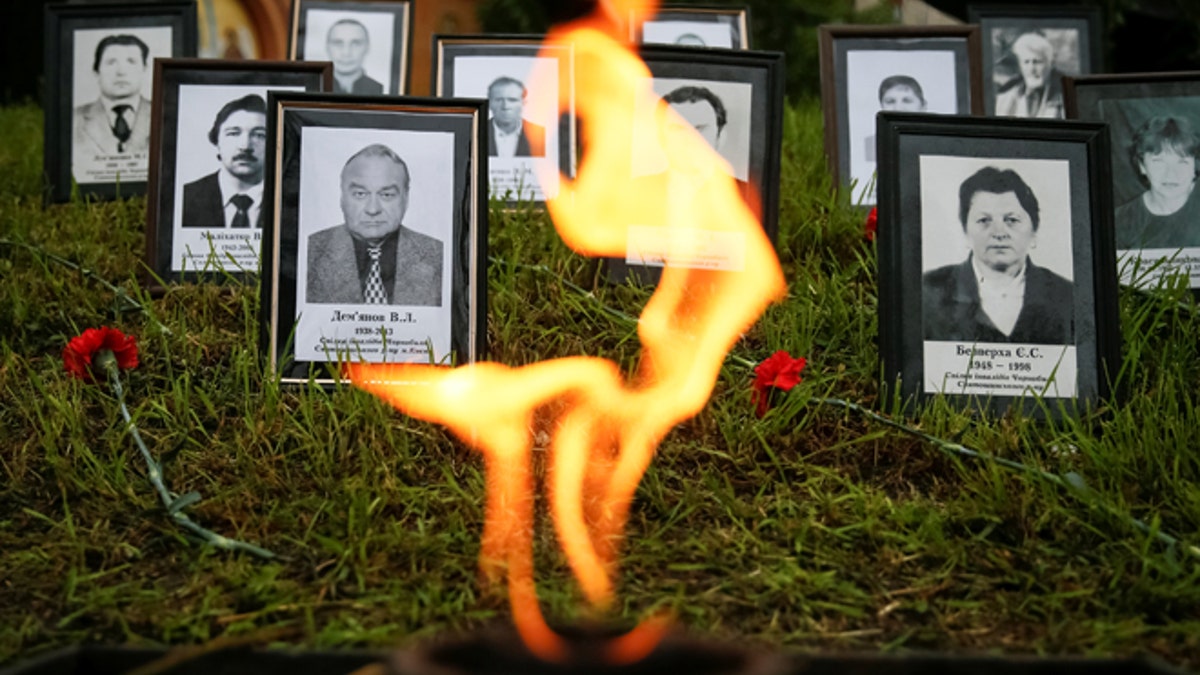
The Three Mile Island Nuclear power plant is pictured from Royalton, Pennsylvania, U.S. May 30, 2017. REUTERS/Carlo Allegri - RTX38APO
The owners of Three Mile Island – the site of the worst commercial nuclear power accident in U.S. history – announced earlier this week that it would shutter operations at the plant in 2019 unless the state of Pennsylvania rescues it from its financial woes.
The announcement by Chicago-based Exelon comes after more than five years of losses at the single-reactor plant and Three Mile Island’s recent failure to be selected as a guaranteed power supplier to Pennsylvania’s regional energy grid. The move to close the plant is also seen as a harbinger of things to come for the U.S.’s nuclear power industry, which has struggled in recent years amid the rise of cheap natural gas and state and federal subsidies going to renewable power sources like wind and solar.
“The Commonwealth [of Pennsylvania] has an opportunity to take a leadership role by implementing a policy solution to preserve its nuclear energy facilities and the clean, reliable energy and good-paying jobs they provide,” Exelon CEO Chris Crane said in a statement.
At the heart of the matter is the debate over whether or not nuclear power should be considered a clean energy source and afforded the same type of preferential treatment and premium payments given to renewable energy resources. The Obama administration excluded existing nuclear reactors from receiving any special carbon-reduction credits under its Clean Power Plan – a move that many nuclear engineers and industry insiders say is unfair given carbon-emitting natural gas processors are able to receive the credits.
“This is completely inconsistent with the plan,” Arthur Motta, the chair of the nuclear engineering program at Pennsylvania State University, told Fox News. “Renewable energy sources are only economically competitive with these subsidies and without them nuclear plants become even less competitive.”
Motta added that with the federal government not subsidising nuclear power generation, the owners of nuclear power plants have turned to state governments for help. Owners argue that closing a plant would be a huge economic hit to a region as hundreds of people would be out of work.
In December, Illinois approved $235 million a year for Exelon to prop up nuclear plants in Clinton and the Quad Cities, six months after the company threatened to shut them down.
FirstEnergy has said it could decide next year to sell or close its three nuclear plants — Davis-Besse and Perry in Ohio and Beaver Valley in Pennsylvania. PSEG of New Jersey, which owns all or parts of four nuclear plants, has said it won't operate ones that are long-term money losers.
In the case of Three Mile Island, Exelon has appealed to Pennsylvania Gov. Tom Wolf to follow the example of Illinois, but there is strong resistance in the Keystone State from rival energy companies and environmental advocates who worry both about a rise in utility bills and the dangers posed by nuclear energy.
“Governor Wolf is concerned about potential layoffs and empathizes with these employees,” J.J. Abbott, the governor’s press secretary, said in a statement to Fox News. “As we move forward, we expect a robust conversation about the state's energy sector. Governor Wolf is open to these conversations and looks forward to engaging with the General Assembly about what direction Pennsylvania will go in regards to its energy sector, including the future of nuclear power.”
Exelon employs 675 people at the plant, whose license does not expire until 2034.
The biggest obstacle that nuclear power faces in returning to the golden age glory of the early 1970s is the ubiquitous perception that it is an extremely dangerous and volatile form of energy.
The partial core meltdown of Three Mile Island’s Unit 2 reactor in March 1979 – which led to fears of a hydrogen bubble exploding with catastrophic consequences and the prompting of 144,000 people to flee their homes amid conflicting or ill-informed information – certainly played a major role in bolstering the negative perception of nuclear energy.
Experts have come to no firm conclusion about the health effects or the amount of radiation released, though government scientists have said the maximum individual dosage was not enough to cause health problems. A group of Penn State College of Medicine researchers announced on Wednesday a possible link between radiation from the Three Mile Island accident and thyroid cancers in people living near the plant.
The 1986 Chernobyl disaster in what is now the Ukraine and the 2011 Fukushima Daiichi accident in Japan has added to the bad public relations for nuclear power.

Portraits of "liquidators", emergency workers who fought the blaze at the Chernobyl nuclear reactor, are seen during a commemoration ceremony in Kiev, Ukraine, April 26, 2016. REUTERS/Gleb Garanich - RTX2BPDA
“Millions of lives changed after Fukushima and Chernobyl,” Shawn-Patrick Stensil, a senior energy analyst for Greenpeace, said in a statement. “We shouldn’t forget the immense suffering these disasters continue to cause. We need to urgently phase out nuclear and move towards 100 percent renewable energy -- the only safe, clean energy that can meet the world’s energy need.”
Experts like Penn State’s Motta contest, however, that other forms of energy like coal and oil do much more environmental damage and have been the cause of numerous accidents from India's Bhopal gas tragedy in 1984 to Deep Water Horizon.
“People say you shouldn’t build a nuclear power plant because they are dangerous, but nobody says that about the dangers of chemical plants,” Motta said. “Nuclear power can be dangerous, but so are so many forms of energy.”

